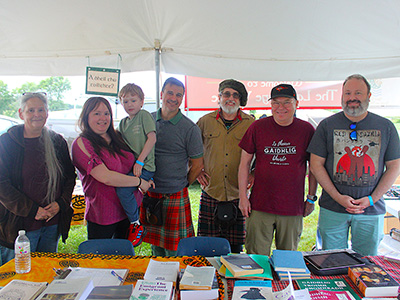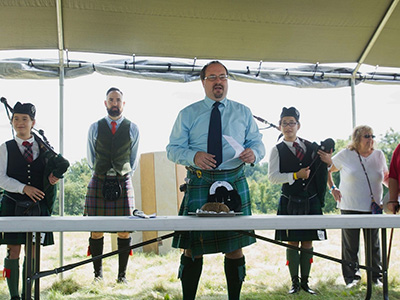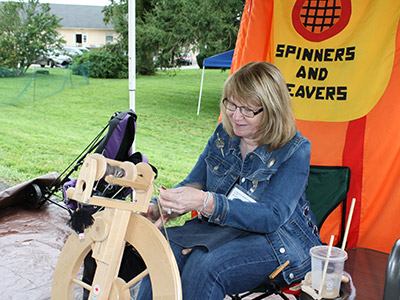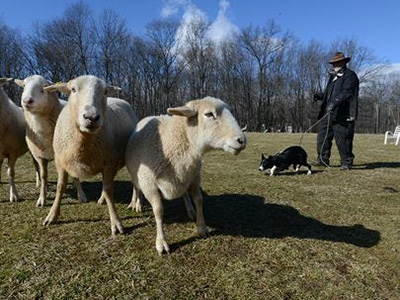 Gàidhlig is the oldest surviving language of Scotland. It offers a unique perspective on the history, culture and future of Scotland and communities of Gaels, wherever they are.
Gàidhlig is the oldest surviving language of Scotland. It offers a unique perspective on the history, culture and future of Scotland and communities of Gaels, wherever they are.
The Language Village, is an interactive, engaging space where Gàidhlig is being spoken, visitors are introduced to the language, and everyone can take part in singing, learning, and other activities. The Village will run a variety of language activities throughout the festival designed to educate festival goers about the broader Gaelic culture using a “hands on” learning approach including static and video displays, waulking songs and demos, poetry, music, and introductory Gàidhlig classes. Harp playing or other music is throughout the day.
Sgoil Gàidhlig Bhaile an Taigh Mhóir teaches the Scottish Gaelic language in its contemporary and historical context. The Village is dedicated to cultivating new Gaelic speakers, using methods that honor and perpetuate Gaelic culture and language.
Language Village Website
 The haggis is a traditional Scots dish memorialized as the national dish of Scotland by Robert Burns' poem 'Address to a Haggis' in 1787.
The haggis is a traditional Scots dish memorialized as the national dish of Scotland by Robert Burns' poem 'Address to a Haggis' in 1787. The Brandywine Dulcimer Fellowship (BDF) was founded in 1980 to provide mountain and hammered dulcimer players in the greater Wilmington, Delaware area with an informal venue for musical jams, focusing on old-time, folk, and Celtic music . The group has held its monthly first-Friday evening meetings in a variety of locations, from private homes to local churches. For many years, our meeting place has been Grace Lutheran Church in Hockessin, DE. All acoustic instruments and singing voices are welcome: in addition to dulcimers, we have hosted players of guitar, banjo, fiddle, mandolin, ukulele, and flute, to name a few. From time to time, BDF has sponsored workshops and concerts by prominent members of the dulcimer community.
The Brandywine Dulcimer Fellowship (BDF) was founded in 1980 to provide mountain and hammered dulcimer players in the greater Wilmington, Delaware area with an informal venue for musical jams, focusing on old-time, folk, and Celtic music . The group has held its monthly first-Friday evening meetings in a variety of locations, from private homes to local churches. For many years, our meeting place has been Grace Lutheran Church in Hockessin, DE. All acoustic instruments and singing voices are welcome: in addition to dulcimers, we have hosted players of guitar, banjo, fiddle, mandolin, ukulele, and flute, to name a few. From time to time, BDF has sponsored workshops and concerts by prominent members of the dulcimer community. Lancaster Spinners and Weavers Guild.
Lancaster Spinners and Weavers Guild. Gàidhlig is the oldest surviving language of Scotland. It offers a unique perspective on the history, culture and future of Scotland and communities of Gaels, wherever they are.
Gàidhlig is the oldest surviving language of Scotland. It offers a unique perspective on the history, culture and future of Scotland and communities of Gaels, wherever they are. Gene Sheninger and his wife Terri of Wayside Farm, Hackettown, NJ, are Border Collie handlers, trainers & breeders. They are also full-time sheep farmers, using traditional methods of sheep management.
Gene Sheninger and his wife Terri of Wayside Farm, Hackettown, NJ, are Border Collie handlers, trainers & breeders. They are also full-time sheep farmers, using traditional methods of sheep management.